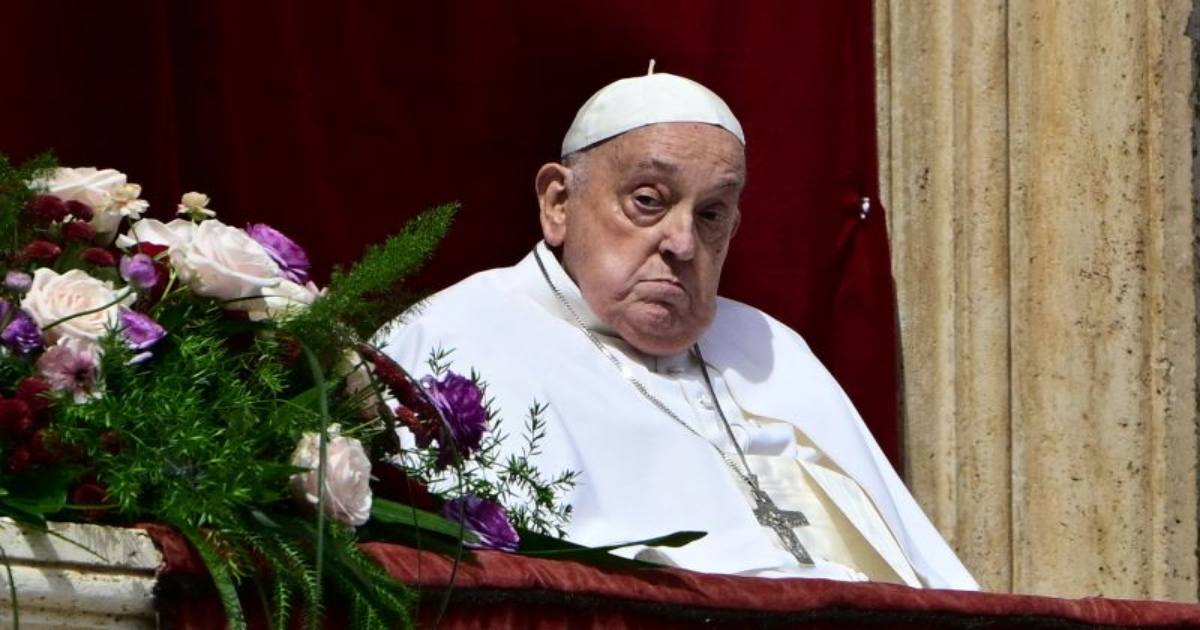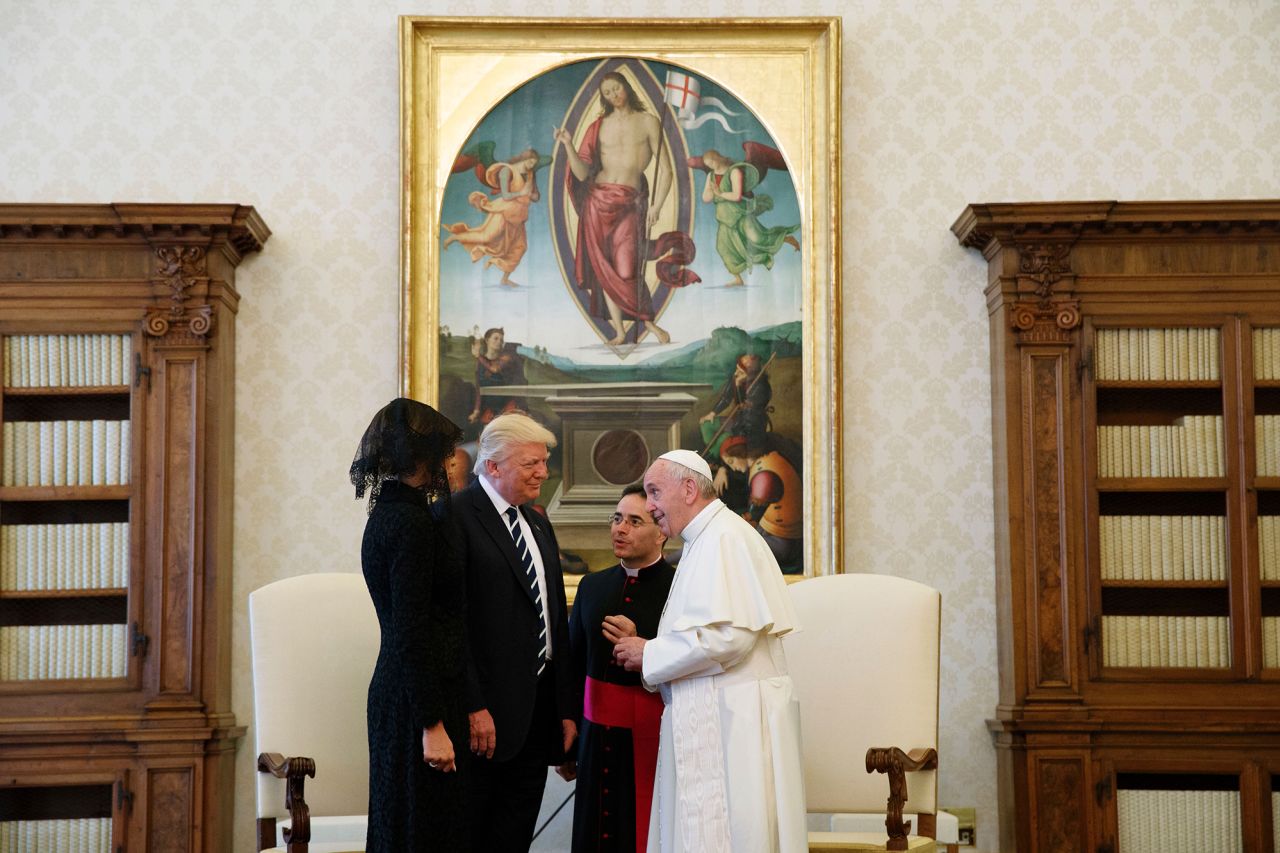
The White House has shared an initial memorial post for the late Pope Francis, writing on X “Rest in Peace” alongside photos of President Donald Trump and Vice President JD Vance meeting the Pontiff.
Trump met Francis at the Vatican in 2017, while Vance met Francis briefly on Sunday, just one day before his death.

Church bells across Rome began to ring after the Vatican announced Pope Francis’ death on Monday morning.
The pope’s death comes as most Italians have the day off work as Easter Monday is a national holiday in Italy. Many Italians traditionally spend the day meeting with family and friends and gather for picnics. It’s likely that many will be reconsidering their plans in light of the pontiff’s passing.

Put simply, the camerlengo — or chamberlain — is the acting head of the Vatican in the period between the death or resignation of a pope and appointment of the next leader of the Catholic Church.
It’s the camerlengo’s job to “officially ascertain the Pope’s death,” draw up the death certificate, place seals on the pope’s bedroom and study and make funeral preparations.
The camerlengo is also tasked with making practical arrangements for the conclave, to ensure the confidentiality of proceedings and orderly voting.
The camerlengo’s powers are limited to the day-to-day administration of the Vatican and he chairs a committee of three other cardinals as he carries out his duties. When serious matters arise, he must consult with the wider body of cardinals.
Pope Francis was elected in 2013 after Benedict XVI retired. He was the first Latin American pope in history and the first from the Americas.
Before he was pope, he was Cardinal Jorge Mario Bergoglio, the archbishop of Buenos Aires.
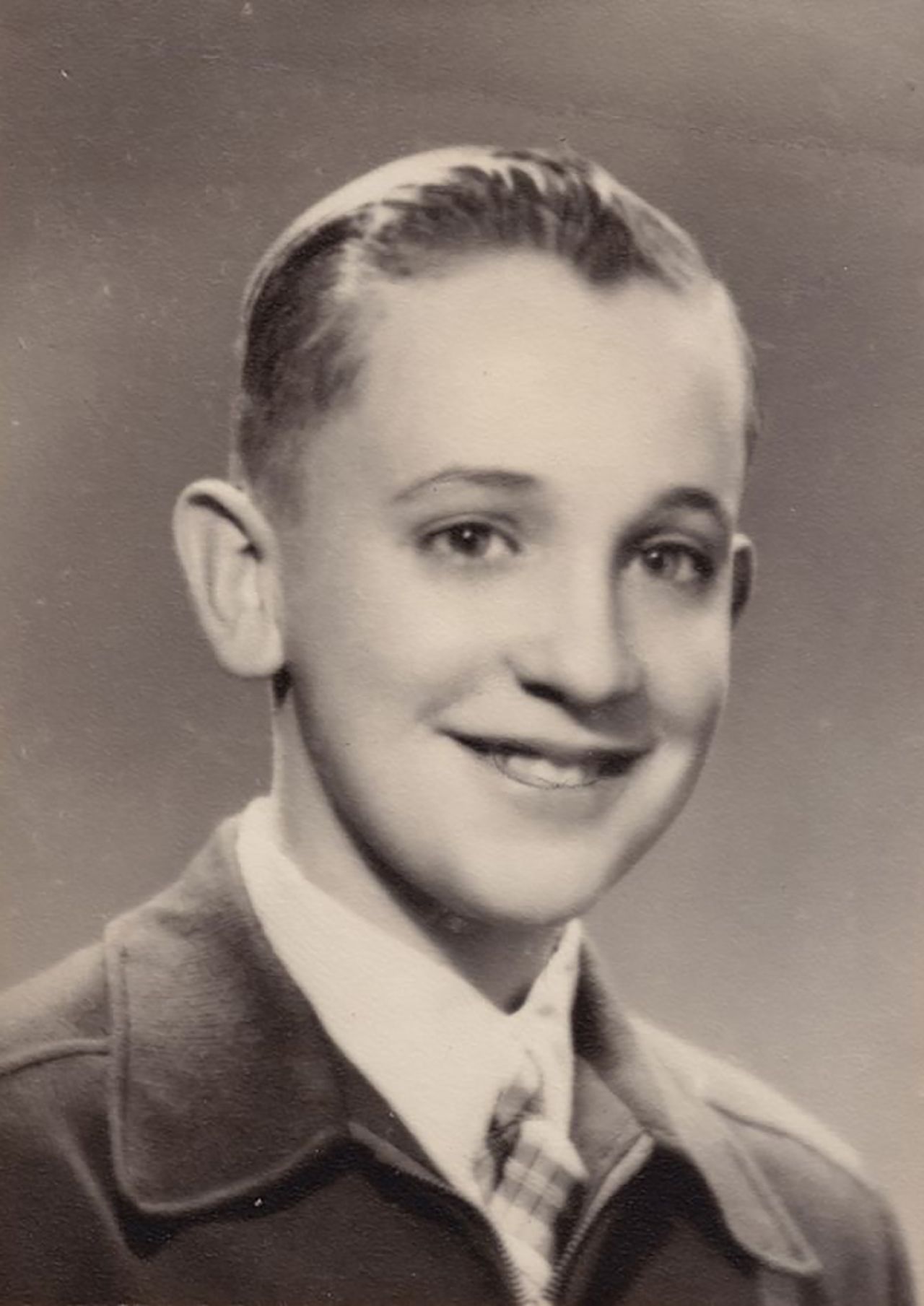
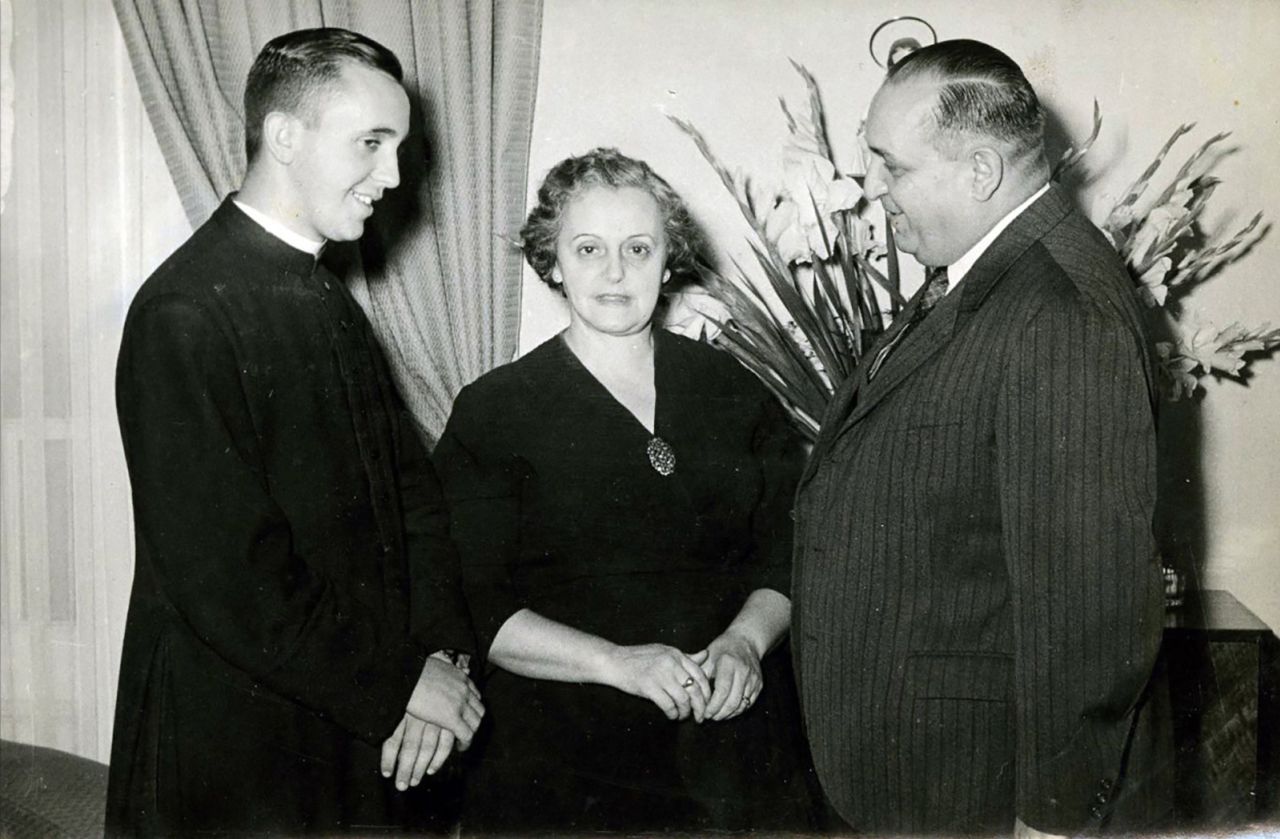
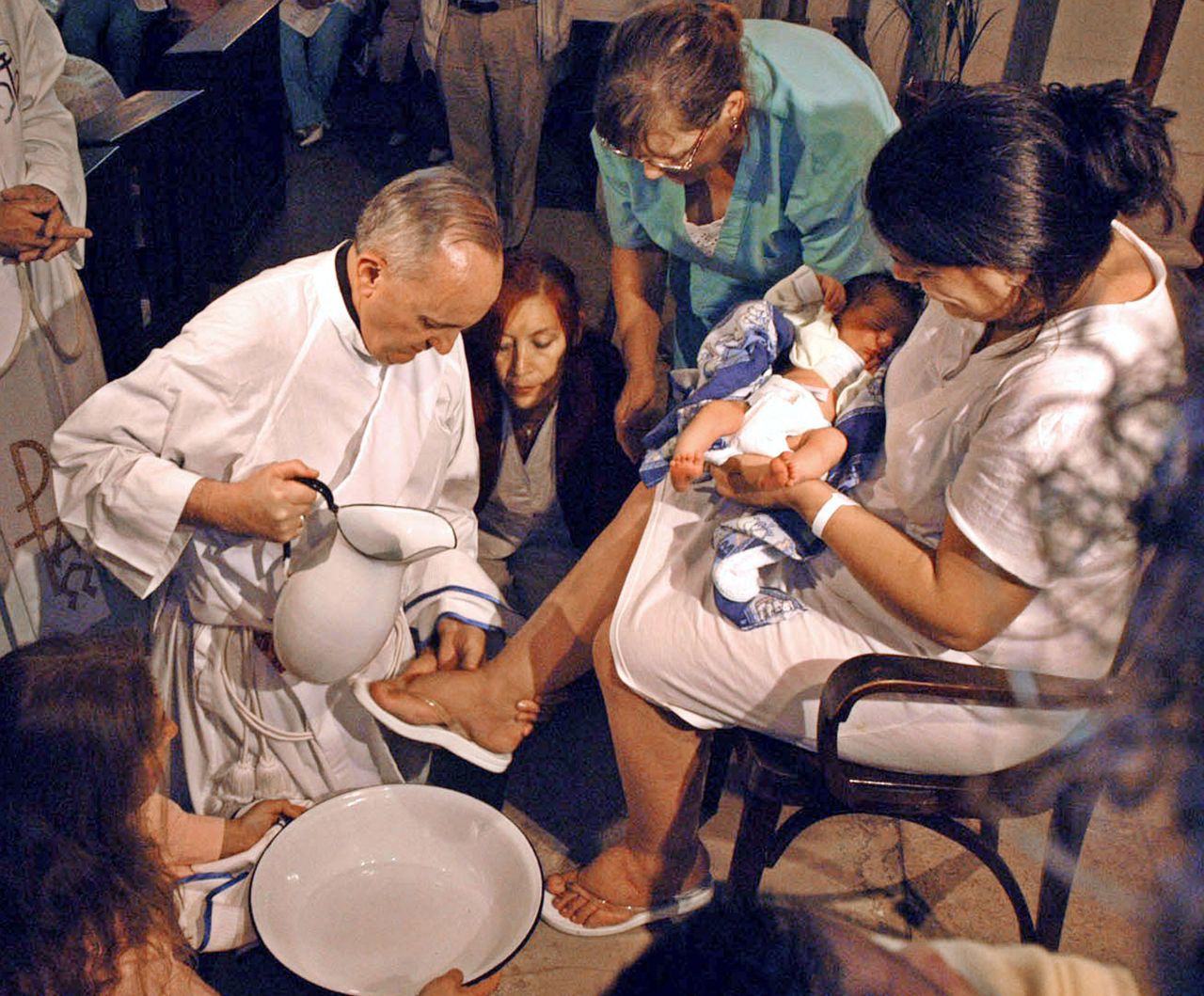
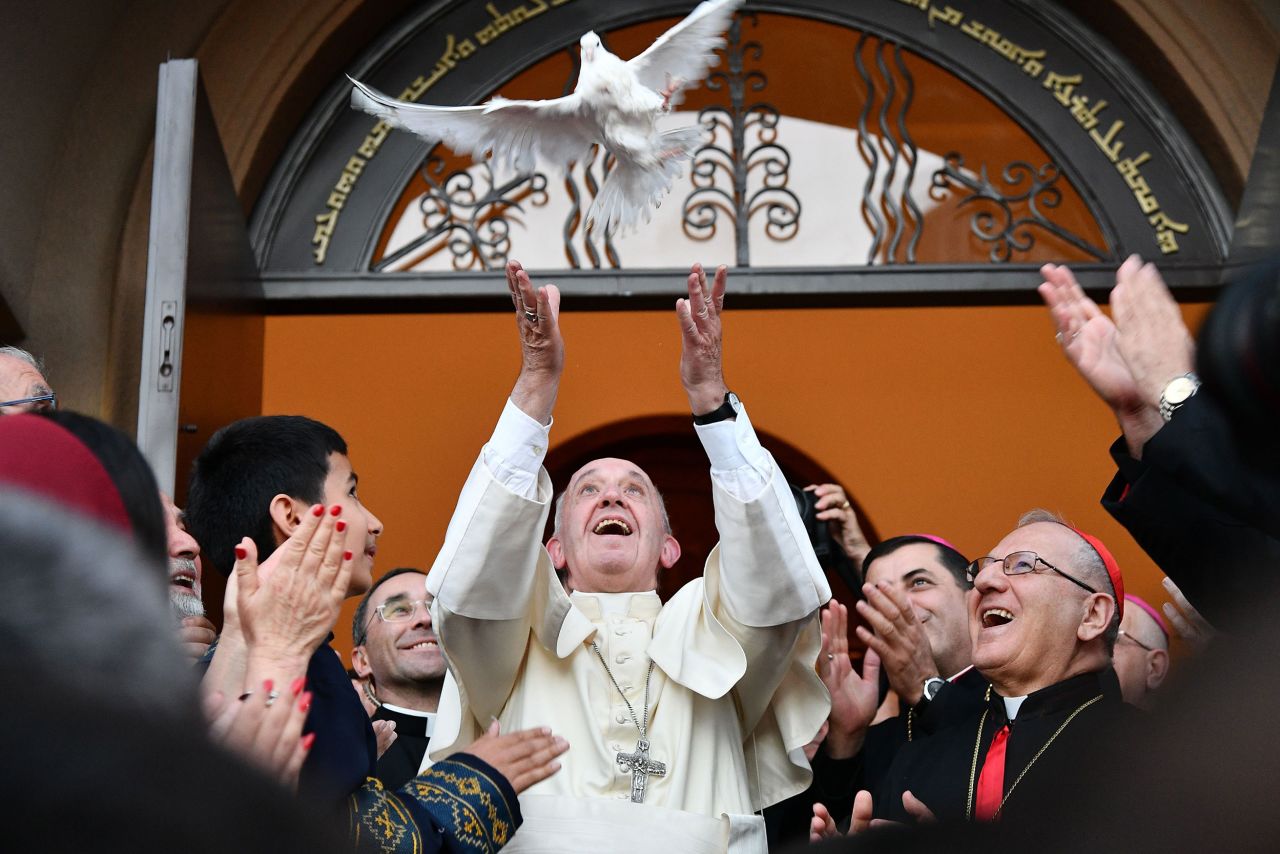
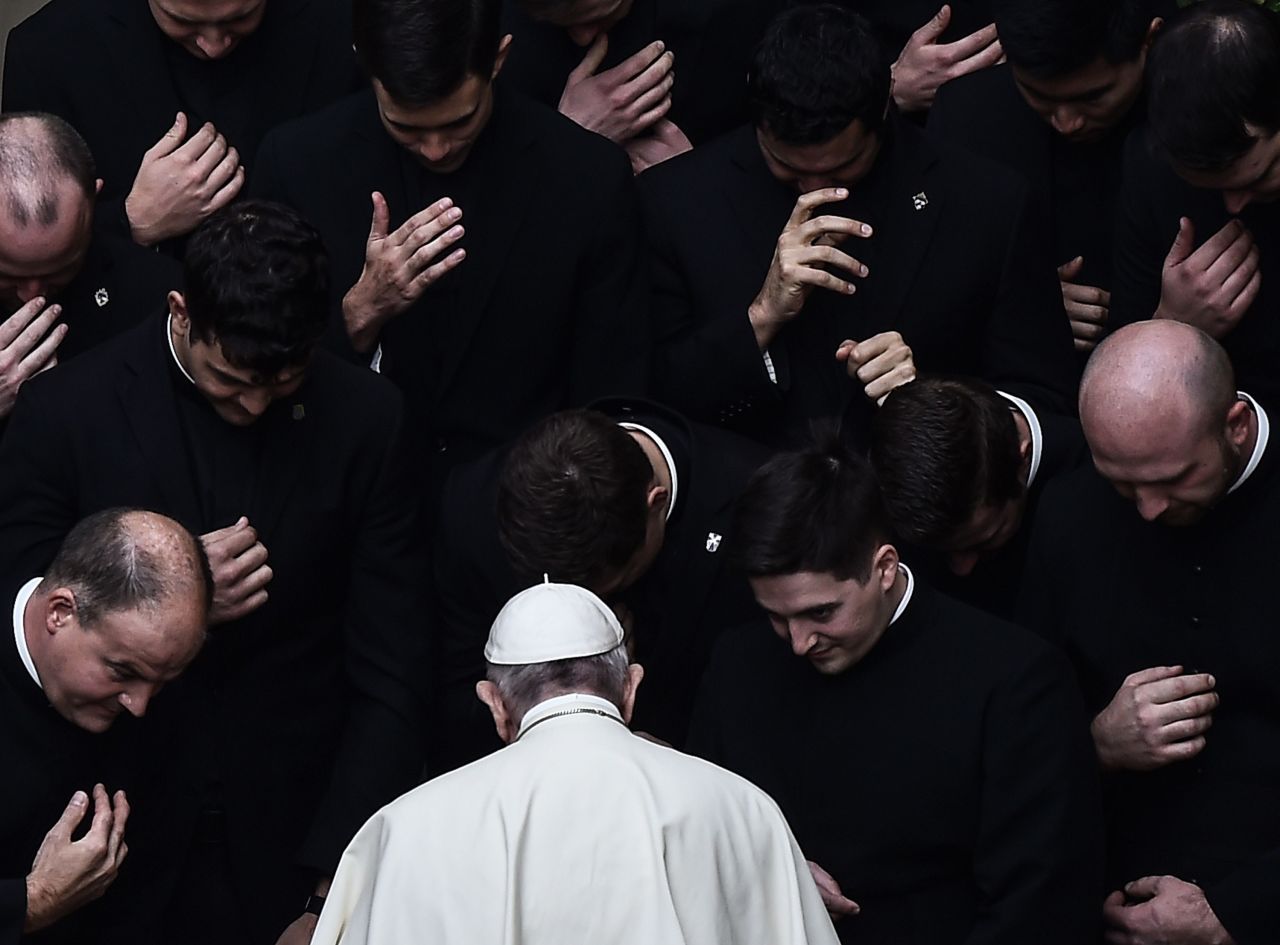
See more photos from Pope Francis’ life
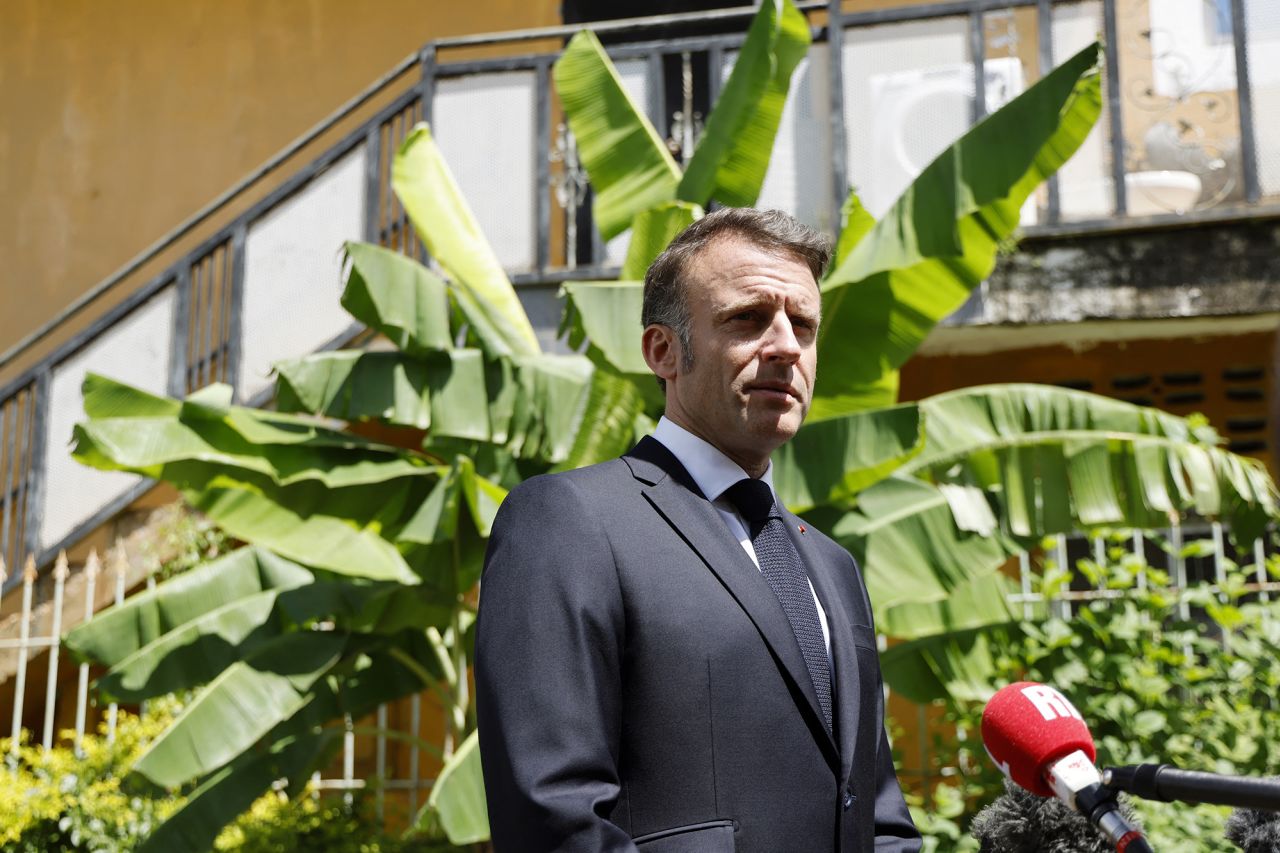
French President Emmanuel Macron has paid tribute to Pope Francis, saying: “From Buenos Aires to Rome, Pope Francis wanted the Church to bring joy and hope to the poorest. To unite people with one another and with nature. May this hope be resurrected unceasingly beyond him,” Macron said in a statement.
Germany’s chancellor-in-waiting Friedrich Merz said “the death of Pope Francis fills me with great sadness. Francis will be remembered for his tireless commitment to the weakest members of society, to justice and reconciliation,” in a statement.
European Commission President Ursula von der Leyen sent a message of condolences, saying the pope “inspired millions, far beyond the Catholic Church, with his humility and love so pure for the less fortunate.”
Indian Prime Minister Narendra Modi said he was “deeply pained” by the passing of the pope. “In this hour of grief and remembrance, my heartfelt condolences to the global Catholic community. Pope Francis will always be remembered as a beacon of compassion, humility and spiritual courage by millions across the world,” he said.
Israeli President Isaac Herzog expressed his “deepest condolences to the Christian world,” remembering the pope as “a man of deep faith and boundless compassion” who “saw great importance in fostering strong ties with the Jewish world and in advancing interfaith dialogue.”
Australian Prime Minister Anthony Albanese said in a national televised address that all flags would fly at half-mast on government buildings Tuesday as a sign of respect for the late pontiff. “For Australian Catholics, he was a devoted champion and loving father,” Albanese said. “Pope Francis lived out his faith and vocation in word and deed. He was truly inspirational.”
New Zealand Prime Minister Christopher Luxon said Francis was “a man of humility, his legacy includes an unwavering commitment to the vulnerable, to social justice and to interfaith dialogue.”
Pakistan Prime Minister Shehbaz Sharif said Francis was “a pioneer of interfaith harmony, peace, and the promotion of humanity,” calling his passing “an irreparable loss to the entire world.”
Lebanon’s President Joseph Aoun said Francis’ death was “loss for all humanity, as he was a powerful voice for justice and peace, a champion of the poor and marginalized, and an advocate for dialogue between various religions and cultures.”
Malta’s President Myriam Spiteri Debono said that Francis “will be remembered for his humility, the particular attention he gave during his term to the poor and marginalized, and his continuous work for international peace and reconciliation between peoples.”
Ireland’s Taoiseach Micheál Martin said that the Catholic world has “lost an exceptional leader” and added that the pope holds “a special place in the hearts of the Irish people,” recalling the pontiff’s 2018 visit to the country.
US Vice President JD Vance, who met with Francis hours before his death, said he was “happy to see” the pope on Easter Sunday, “though he was obviously very ill.”
“I just learned of the passing of Pope Francis. My heart goes out to the millions of Christians all over the world who loved him,” Vance said Monday in a post on X.
“I was happy to see him yesterday, though he was obviously very ill. But I’ll always remember him for the below homily he gave in the very early days of COVID. It was really quite beautiful.”
Pope Francis had a private meeting with Vance, a devout Catholic, on Sunday. A day earlier, Francis had criticized the Trump administration’s immigration policy.

Pope Francis spent his final days in service of the church, participating as much as he could in the celebration of Easter, the high point of the Christian calendar.
The 88-year-old pontiff did not lead the main Holy Week and Easter services but has made brief appearances over the weekend, including spending 30 minutes at a prison in Rome on Thursday and making a visit to St. Peter’s Basilica on Saturday evening.
And then on Sunday morning, he was able to offer the “Urbi et Orbi” blessing to the “City [of Rome] and to the World” while an aide read his address. Only the pope can offer this blessing which includes the offer of an indulgence, a remission for the effect of sins.
He later greeted cheering crowds in St. Peter’s Square from the popemobile, the first time he has done so since his hospitalization. He also met briefly with US Vice President JD Vance, who is the last foreign civic dignitary to have met with Pope Francis.

“It is quite extraordinary that after the highest point of the church’s liturgical year, at the highest point, the Pope then passes on and it’s, in some ways quite fitting, because of course the Easter message is all about the death and new life,” said CNN Vatican correspondent Christopher Lamb from Rome.
“The last days of Francis were really dedicated to serving the church, to continuing his ministry right until the end. He did not resign, as some people speculated (he would). He always signaled his determination to go until the end, to serve until the very last moment.”

Francis, born Jorge Mario Bergoglio to Italian migrants in Buenos Aires in 1936, was the first Latin American and member of the Jesuit order to be elected pope in the church’s 2,000-year history. He was also the first pope to call himself Francis.
The Argentinian pontiff quickly gained a reputation as a modernizer, with an outward-facing approach which saw him speak out boldly on humanitarian crises, such as migration, war and climate change.
He sought to reform the church by tackling elitist mentalities among the clergy, demanding a compassionate approach to divorced and gay Catholics and insisting that the church welcome everyone.
He took a series of measures to clean up financial corruption in the Vatican, and to tackle the scourge of clerical sexual abuse, including laws to hold bishops accountable for cover-ups. Francis also sought an enlarged role for women working in the Vatican and authorized priests to offer blessings to same-sex couples.
He built bridges with the Muslim world, while seeking to play the role of peacemaker in the face of global conflicts, particularly in Ukraine and the Middle East.
His reforms saw him face unprecedented resistance from ultra-conservatives inside the church, although progressive Catholics felt he should have gone further in allowing the ordination of married men as priests, shifting official teaching on homosexuality and giving a greater space for women in ministry.
Despite taking a series of tough measures, Francis also failed to quell the scandal of child sexual abuse and other forms of abuse that have plagued the Catholic Church — a disgrace that he made his personal responsibility to end, but which continued to damage the institutional church in multiple countries throughout his papacy.
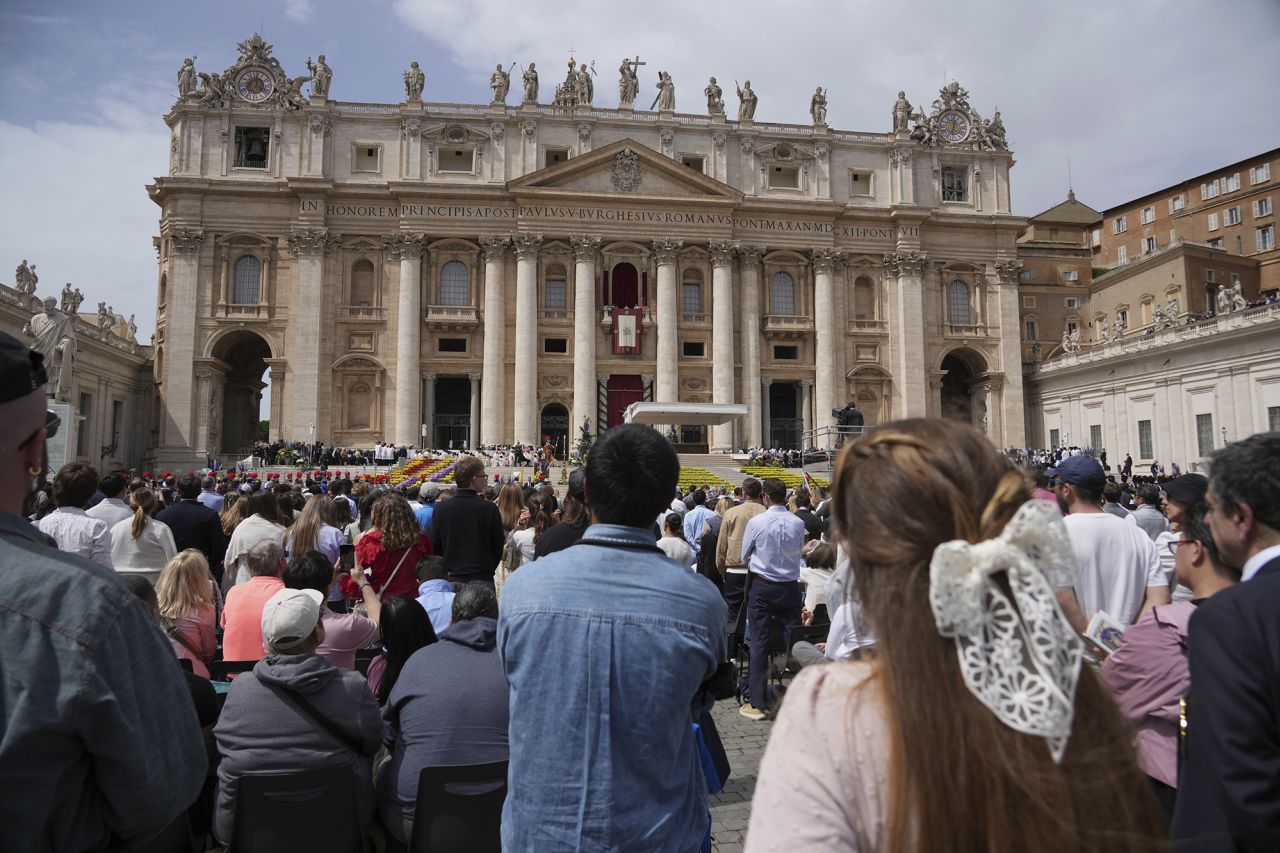
The death of Pope Francis has triggered a period of a mourning in the Vatican and signals the start of a millennia-old process of picking a new pontiff.
It is a procedure steeped in tradition, but one which has been subtly updated for the modern world.
The “Papal Interregnum” — the period between the death of one pope and the election of another — began when Francis passed away.
Cardinals must now decide exactly when the funeral can take place, and after that, when conclave can begin. But much of the timeline is predetermined; the pope’s death triggered the start of nine days of mourning known as the Novendiales, and the pope must be buried between the fourth and sixth day after death.
The body of the pope must also be displayed at St. Peter’s Basilica for mourning, and a mass will take place on each day. Mourners lined up for miles to see the body of Pope John Paul II, the last serving pope to die, in 2005.
Then, all cardinals under the age of 80 will convene in the Vatican to pick Francis’ successor.
It typically takes between two and three weeks for a pope to be chosen, following the death of his predecessor, though it can stretch slightly beyond that if cardinals struggle to agree on a candidate.
The pope’s death was announced on Monday morning by Cardinal Kevin Farrell, the Vatican camerlengo.
“Dear brothers and sisters, with deep sorrow I must announce the death of our Holy Father Francis,” a statement from the camerlengo said.
“At 7:35 this morning the Bishop of Rome, Francis, returned to the house of the Father. His whole life was dedicated to the service of the Lord and His Church.”
Farrell continued, “He taught us to live the values of the Gospel with fidelity, courage and universal love, especially in favour of the poorest and most marginalised.”
“With immense gratitude for his example as a true disciple of the Lord Jesus, we commend the soul of Pope Francis to the infinite merciful love of the Triune God,” the statement concluded.
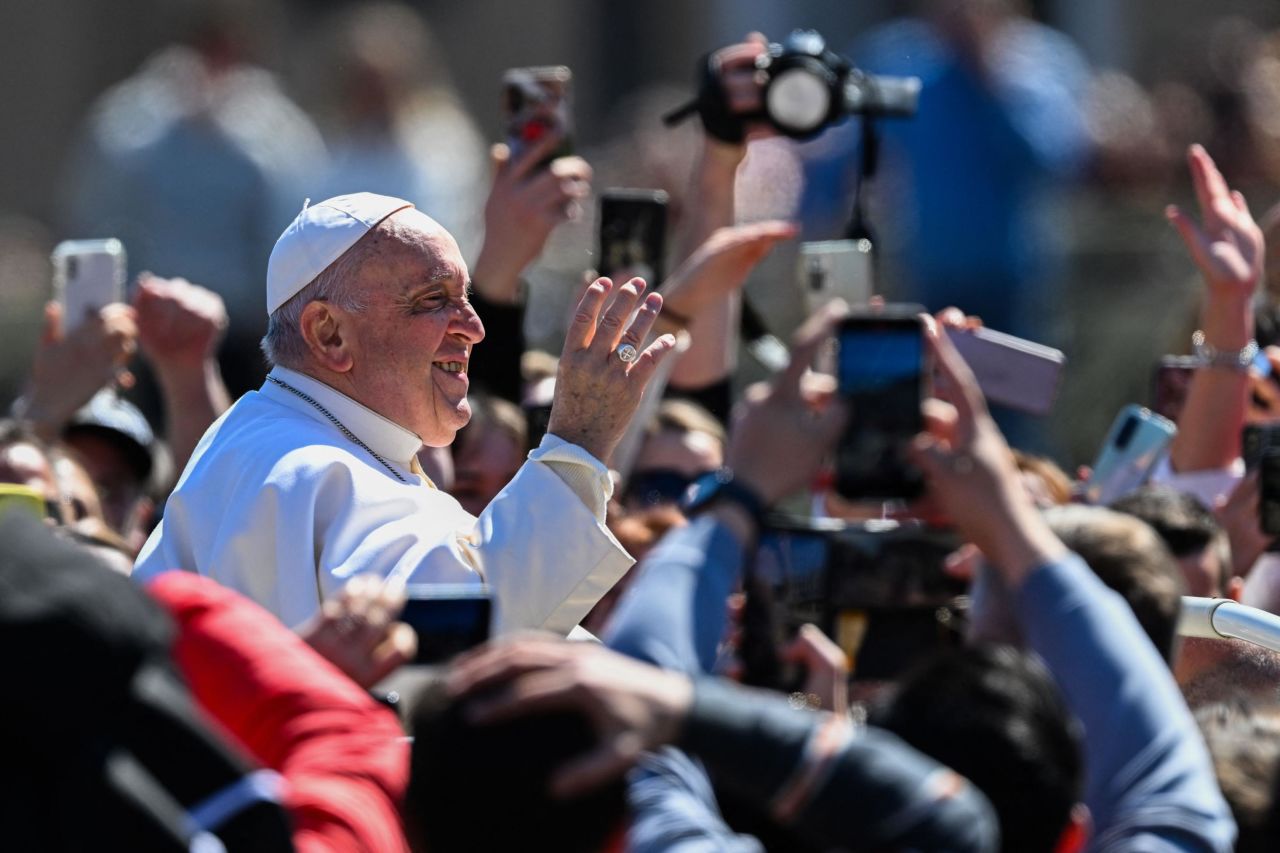
Jorge Mario Bergoglio was born on December 17, 1936, in Buenos Aires to parents of Italian descent. The oldest of five children, the pope often recalled fond memories of a close-knit family and of how his Italian grandmother shaped his faith.
His grandparents narrowly escaped a deadly shipwreck when they migrated from Italy to Argentina, an experience that no doubt influenced his advocacy for those making perilous journeys across the Mediterranean in search of a better life in Europe.
When he was 16, Bergoglio had a profound experience during confession which convinced him to train for the priesthood.
He entered the seminary but three years later started training to become a Jesuit, the religious order renowned for its missionary work.
His leadership abilities were recognized and in 1973, at the young age of 36, he was appointed head of the Jesuit order in Argentina, a position he would hold until 1979.
He became the Bishop of Rome in 2013, setting the tone for his pontificate on the night of his election.
“Let us pray for the whole world, that there may be a great spirit of fraternity,” he said from the balcony of St. Peter’s Basilica.
He stayed true to those words, encouraging all people, no matter their religion or race, to remember their common humanity. Francis was a bridge builder, seeking to work with all faiths and denominations.
Read more about Pope Francis’ life.

Francis’ stint at the head of the Catholic Church was unlike any in centuries.
He was the first pope since the 1400s to co-exist with his predecessor, Benedict XVI, who resigned due to ill health but occasionally signaled his displeasure with the direction in which Francis was steering the church.
And he brought a unique style to the Vatican. Francis famously swerved the opulence afforded to serving popes in favor of the modest trappings of his life in Argentina, where he had once worked as a janitor and a bouncer at a bar.
He turned down the opportunity to move into the luxurious papal apartments, instead opting for a smaller guest house, and celebrated his first birthday in office with three homeless men living on the streets of Rome.
But his tenure did not heal deep divisions within the Catholic Church, whose reputation remains deeply stained by the ongoing revelations of sexual abusers in its ranks, and whose strict teachings on social issues have raised questions about its relevance in parts of the world.

Pope Francis, the first non-European pontiff in nearly 1,300 years, has died, the Vatican has announced. He was 88.
The announcement would have come as a shock to many, coming less than a day after the pope made a high-profile appearance in public.
While he did not appear as engaged as usual on Sunday, he still managed to address a huge crowd of worshippers.
Francis gave the traditional Easter blessing from the balcony of St. Peter’s Basilica in the Vatican, in what marked his highest-profile appearance yet since being discharged from hospital.
Just before that, he held a brief meeting with US Vice President JD Vance.
The death of Francis, who was one of the oldest popes in the church’s history, came weeks after he was discharged from a Rome hospital having battled a life-threatening case of pneumonia in both lungs.
His medical team said his condition had stabilized, allowing for him to continue his convalescence at his Casa Santa Marta residence back at the Vatican. Two weeks after leaving hospital, he delighted the faithful by making a surprise appearance at St. Peter’s Square.
The pope’s tireless advocacy for migrants saw him sharply criticize US President Donald Trump’s immigration deportation policies in the months before his death. Francis, whose pontificate was a counterweight to the rise of nationalist populism, often found himself under fire from powerful conservative Catholic forces in the US.
Francis brought a humbler, more forward-looking approach to the Vatican and worked to soften what the Catholic Church said on social issues like homosexuality, the death penalty and the role of women.
But he struggled to quell the scandal of child sex abuse that has tarnished trust in the church for decades.
His death will open a debate about the future direction of the Catholic Church, with cardinals from across the globe expected to gather in Rome in the coming days to mourn the pontiff and then elect his successor.
